by Reid Hoffman and Greg Beato
I'll rewrite this book summary for you, ensuring it follows your guidelines. I'll keep it conversational, avoid clichés, and include all key ideas marked with ##.
Superagency
What Could Possibly Go Right with Our AI Future
Overview
TL;DR Superagency envisions AI as humanity's amplifier rather than replacement, showing how artificial intelligence can dramatically expand human potential across mental health, education, civic engagement, and governance while maintaining human dignity and choice.
"Business leaders who embrace AI as a partner rather than competitor will create organizations where both human talent and technology flourish together."
Reid Hoffman and Greg Beato present a refreshingly optimistic perspective on our AI future, showing how thoughtful implementation can enhance human capability rather than diminish it. The book offers practical frameworks for leaders navigating this technological transition.
Impact & Outcome
Enhanced decision-making through human-AI collaboration
More accessible expertise and services for previously underserved populations
Who is it for
Business Leaders: looking to integrate AI while keeping humans at the center
Policy Makers: seeking balanced approaches to AI regulation that promote innovation
The Author(s) Reid Hoffman brings deep Silicon Valley expertise as LinkedIn's co-founder and a partner at Greylock ventures, combined with his AI work at Inflection AI. Greg Beato complements this technical knowledge with cultural insight as a veteran technology writer whose work appears in premier publications including The New York Times and Wired.
Key Ideas
1. AI as Human Potential Amplifier
Just as the Industrial Revolution expanded physical capability, AI can dramatically extend our intellectual reach.
Throughout history, from the printing press to telephones, breakthrough technologies have initially sparked fear before becoming essential to modern life. AI represents not a replacement for human capability but its enhancement – an opportunity to create "superagency" where individuals can accomplish more than ever before.
The core concern about AI centers on human agency – our ability to maintain control and make autonomous choices. Many worry about job loss, privacy erosion, and over-dependence on machines. But these fears miss the revolutionary potential of human-AI partnerships that could transform education, healthcare, and countless other fields.
Much like earlier technologies that initially sparked moral panic, AI faces skepticism that may miss its transformative benefits. The printing press, once condemned by religious authorities, democratized knowledge. The telephone, criticized for replacing genuine connection, connected humanity in unprecedented ways.
Today's AI capabilities – engaging in sophisticated conversations, solving complex problems, and simulating human reasoning – represent a similar inflection point. While we naturally worry about control and autonomy, we might be missing the bigger picture: just as machines once gave us physical strength beyond our bodies, AI could give us intellectual reach beyond our individual limitations.
For example, imagine every child having access to a tutor with Leonardo da Vinci's knowledge or carrying a highly capable health advisor in their pocket. These human-AI partnerships could create unprecedented individual capability expansion, bringing world-class expertise to anyone, anywhere.
2. Revolutionizing Mental Healthcare Access
AI could transform mental health from scarce resource to abundant service available to everyone, everywhere, anytime.
The mental health crisis in America has reached critical proportions, with record suicide rates and 129 million Americans living in areas without sufficient mental health professionals. Traditional solutions are falling devastatingly short, and the promise of personalized, accessible care remains unfulfilled for millions.
Current digital mental health applications show potential but suffer from mechanical, impersonal interactions – resulting in a dismal 3.9% retention rate after just two weeks. However, advanced AI systems could analyze millions of therapy interactions to deliver personalized care tailored to individual needs and circumstances.
A 2023 JAMA Internal Medicine study provided compelling evidence of AI's potential when physicians blindly rated AI-generated medical advice higher than human doctors' responses in 78.6% of cases, finding the AI's guidance more comprehensive and, surprisingly, more empathetic. This suggests AI might help bridge critical gaps in care.
In a world with AI-supported mental healthcare, everyone could access clinically-validated therapeutic support whenever needed. Users could experiment with different therapeutic approaches, combine styles, or assemble virtual therapy teams for real-time consultation. Recent research analyzing 160,000 therapy sessions containing over 20 million messages demonstrates how AI can identify which therapeutic approaches work best in different contexts.
The vision isn't replacing human therapists but expanding options. AI could support human practitioners in serving more patients and provide immediate help when human therapists aren't available. Like Spotify for mental health, AI could make care accessible anytime, deeply personalized, and affordable – potentially creating a society with more capacity for kindness and understanding.
3. Balancing Innovation and Safety
Safety improvements often come through innovation rather than restriction, suggesting we should embrace "permissionless innovation" for AI.
The history of automobiles offers surprising lessons about technological safety. In 1927, eight children died in a single day from car accidents in New York City, leading critics to call them "devil wagons." Yet rather than halting development, early manufacturers pursued constant improvement through experimentation, resulting in a 93% reduction in death rates per mile driven since 1923.
This approach, called "permissionless innovation," contrasts with the "precautionary principle" that demands new technologies prove their safety before deployment. While seemingly prudent, the precautionary approach can actually make technologies less safe by slowing down learning and improvement – while delaying revolutionary benefits.
This lesson applies directly to AI development, where modern software allows for instant data collection and rapid updates. When millions use AI systems daily, we gain valuable insights into real-world interactions, unexpected applications, and challenges across diverse contexts.
Rather than trying to perfect AI systems behind closed doors, we should embrace iterative deployment – launching, learning, and improving. Public engagement helps determine acceptable risks based on technology's value. If AI proves as transformative as automobiles in expanding human capability, we'll develop ways to manage risks while harvesting benefits.
The automobile example shows how a potentially dangerous technology evolved through continuous improvement rather than restriction. Had regulators limited cars to 25 mph in 1923, we would have lost both safety improvements and the technology's transformative impact on individual freedom, economic opportunity, and social mobility.
4. Smart Regulation as Freedom Enhancer
Thoughtful regulation often expands rather than restricts individual freedom and capability.
Consider how the American transportation system evolved from settlers traveling 8-20 miles per day by covered wagon to modern travelers covering hundreds of miles daily with minimal planning. This dramatic expansion of human mobility wasn't achieved through absence of regulation, but through thoughtful infrastructure and rules.
The Interstate Highway System exemplifies how regulation can enhance freedom. Originally conceived as a Cold War defense project, it evolved into a vast network that transformed travel, making extraordinary mobility an everyday reality. Driving regulations – speed limits, licensing requirements, seat belt laws – didn't restrict mobility but made it safer and more accessible to everyone.
AI development requires similar frameworks. Like early automobiles, AI offers tremendous potential for expanding individual capability. Making this power broadly accessible will require new forms of certification and security – not to restrict freedom, but to enhance it through trust and safety.
For example, AI licensing could ensure safe access to powerful models while protecting against misuse. Chains of data provenance could help prevent deep fakes. Identity verification systems could allow widespread access to AI tools while preventing impersonations and fraud. The right frameworks will help us trust and adopt these systems, just as standardized road rules helped drivers confidently navigate America's highways.
South Korea's COVID response illustrates this principle in action. Rather than implementing restrictive lockdowns, they enhanced individual freedom of movement by combining technology with clear regulations and public participation, using AI-powered contact tracing in a transparent system that allowed people to move freely while managing risk.
The key insight is that freedom evolves with technological capabilities. New powers require new rules to become truly liberating for everyone.
5. Democratizing Expertise and Information
AI serves as a navigation system for information, making expertise accessible to everyone regardless of background or resources.
The evolution of GPS technology offers a compelling parallel for understanding AI's democratizing potential. Initially reserved for military use, the first consumer GPS device in 1989 cost the equivalent of $7,727 today. Yet over time, GPS became widely accessible, transforming how billions navigate their daily lives.
AI is following a similar path – but instead of navigating physical space, it helps people traverse complex landscapes of information. A student with dyslexia can now use AI to convert dense textbooks into accessible audio formats with examples from their personal interests. A recent immigrant facing legal documents in a non-native language can receive explanations in their own language with relevant context.
This democratizing effect is particularly powerful for those who previously lacked access to expertise. In a recent study, customer service representatives using AI assistance saw productivity increase by 14% – with the most dramatic improvements coming from newer employees who could suddenly access years of expert knowledge on demand. For these workers, AI functions like a personal mentor, helping them quickly develop mastery in complex situations.
Unlike traditional expertise sources, AI is instantly accessible, infinitely patient, and available 24/7. For busy executives, this convenience saves time. But for someone juggling multiple jobs with limited transportation and scarce childcare, it could be truly life-changing.
The key distinction is user control – you direct the tool. Just as you might tell GPS to "avoid highways" or "find a scenic route," you can guide AI to present information matching your learning style, cultural background, and personal interests. It's one thing to have theoretical access to information; it's another to navigate it confidently on your own terms.
6. Strengthening Democratic Governance
AI can enhance rather than erode democratic participation, making government more responsive to citizens' needs.
The global AI landscape is becoming more multipolar as nations recognize that AI capabilities will be crucial to future prosperity and autonomy. This has sparked the concept of "sovereign AI" – countries developing capabilities reflecting their strategic interests and cultural identity.
Singapore has launched a national AI strategy designed to reflect regional cultural values. France has committed $550 million to create "AI champions," emphasizing French language databases. These initiatives acknowledge that AI will fundamentally shape societal function and evolution.
This transformation is also helping governments reimagine public services. South Korea is consolidating approximately 1,500 public services into a single AI-powered portal that will proactively notify citizens about benefits they qualify for, making government services as seamless as using Amazon or Google.
The implications for democratic governance are particularly promising. In Taiwan, an AI-powered platform called Polis has demonstrated how technology can enhance civic participation. When Taiwan faced contentious debate over ride-sharing regulation, Polis helped identify unexpected areas of consensus between opposing factions. The platform prevents trolling and angry exchanges while using AI to cluster similar viewpoints and highlight agreement areas, resulting in broadly supported policy solutions.
This points to an optimistic vision of AI in governance – not as a surveillance tool, but as a means to amplify citizens' voices in policymaking. Forward-thinking countries are discovering that technology can strengthen democratic institutions, enabling more responsive and participatory governance. Nations that successfully navigate this transformation will find themselves with not just more efficient governments, but more engaged and empowered citizens.
Quotes
"Like early automobiles, AI offers tremendous potential for expanding what individuals can accomplish. And like highways, making this power broadly accessible will require new frameworks of rules."
"Unlike traditional sources of expertise, AI is instantly accessible, infinitely patient, and available 24/7. For a busy executive, this convenience saves time. But for someone juggling multiple jobs, limited transportation, and scarce childcare, it could be life-changing."
"Through neural networks and server clusters, we may become not just more technologically advanced, but more humane."
Key Takeaways
Look for ways AI can amplify your team's capabilities rather than focusing exclusively on automation or replacement
Consider how AI might help democratize expertise within your organization, helping newer employees access institutional knowledge
Learn from the history of technological adoption – the most transformative technologies often face initial resistance
Explore how AI might enhance rather than erode human agency by making information more accessible and personalized
Consider the balance between innovation and regulation – smart frameworks often expand rather than restrict possibilities
Glossary
Superagency: The dramatic expansion of human capability through AI-human partnerships
Permissionless innovation: Allowing new technologies to develop through rapid iteration and real-world testing rather than pre-approval
Precautionary principle: The approach requiring technologies to prove safety before deployment
Sovereign AI: The concept that nations must control their own AI development to preserve strategic interests and cultural identity
Polis: An AI-powered platform used in Taiwan to enhance civic participation and identify consensus in policy debates
Recommended Reading
Blitzscaling by Reid Hoffman: Provides context on how rapid scaling of technology can transform industries and why speed often matters more than perfection
Enlightenment Now by Steven Pinker: Offers historical perspective on how technology and reason have consistently improved human welfare despite initial fears

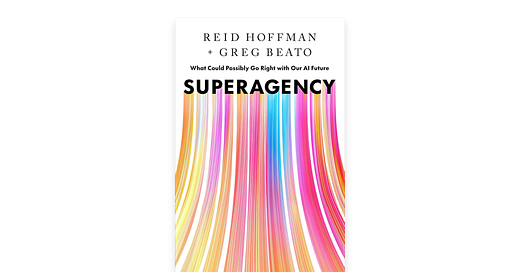

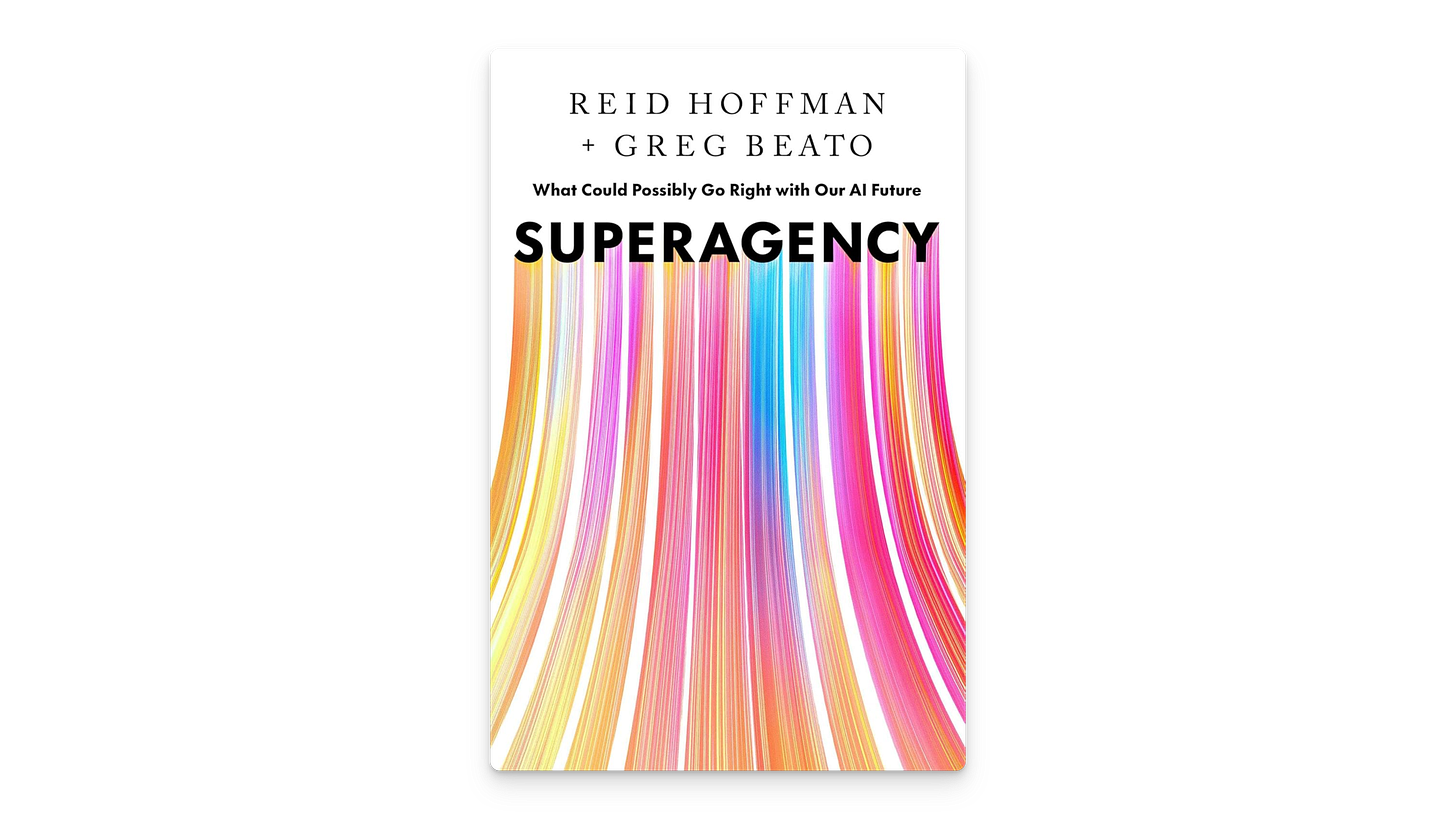
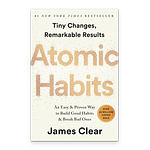
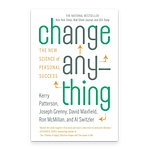
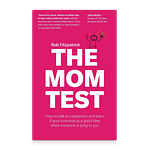

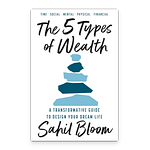
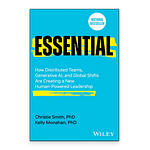


Share this post